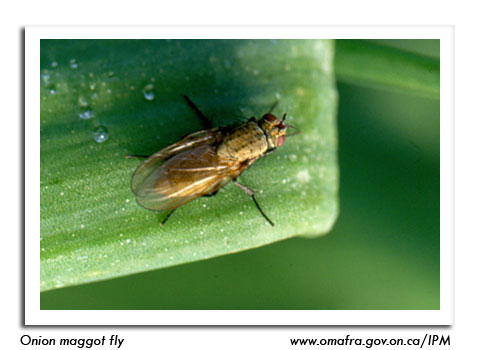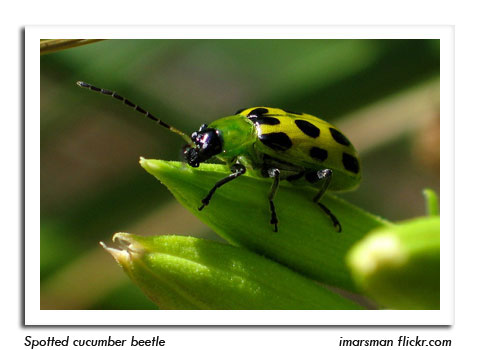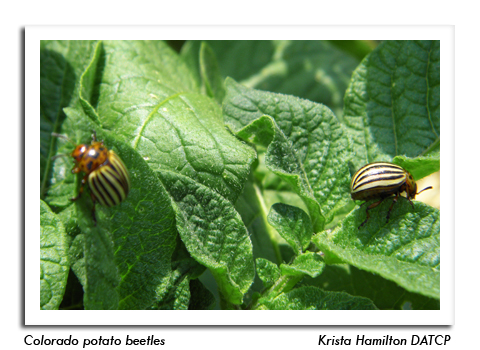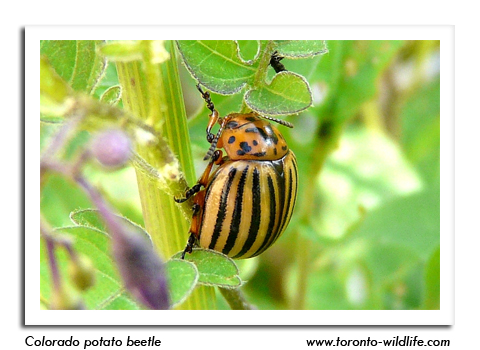
 |
|
|
Vegetables
Volume 60 Number 4 Date 05/14/2015 ONION MAGGOT - Peak emergence is anticipated in the Beloit, La Crosse, Lone Rock and Madison areas of south-central and southwestern Wisconsin next week, following the accumulation of 680 degree days (simple base 40°F). The accumulation above a base temperature of 40°F was 634 at La Crosse and 560 at Madison as of May 13. Flies of this spring generation are usually the most abundant and damaging, especially at sites where onions are grown in succession. Preventative soil insecticides should be considered if maggot damage to the last season's crop exceeded 5-10%. Home gardeners are advised to rotate this year's onion plantings as far as possible from last year's to reduce the probability of damage. SPOTTED CUCUMBER BEETLE - Spring migrants were collected in La Crosse and Vernon County alfalfa late last week. These distinctive yellowish-green beetles with black spots do not overwinter in Wisconsin, but arrive at this time of year on storms fronts originating in the southern United States. Both the spotted species and the striped cucumber beetle are efficient vectors of bacterial wilt of cucumbers, muskmelons and watermelons. Scouting field edges and interiors multiple times per week is recommended starting in early June. COLORADO POTATO BEETLE - Emergence of overwintered adults has been noted in Columbia and Vernon counties, indicating that oviposition on potatoes, tomatoes, eggplants and other host plants should begin before the end of the month. The bright orange-yellow eggs are deposited in clusters of 15-30 on the undersides of leaves. Egg hatch occurs in 4-9 days. -- Krista Hamilton, DATCP Entomologist 



|
|
|